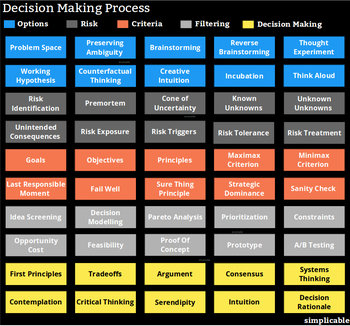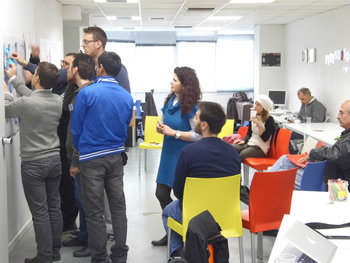
Abduction vs Induction
The process of abduction is similar to another type of reasoning known as induction. The differences between the two are subtle. Induction is a more rigorous process that is appropriate for developing scientific theories, whereas abduction is more of a guess that's used for decision making. Abduction is better suited to data sets that are incomplete. Both abduction and induction are bottom-up and allow for uncertain conclusions.When To Use Abduction
Abduction is commonly used to solve problems in the context of uncertainty. For example, medical evaluations may begin by considering the mostly likely conditions that can explain a set of symptoms. Abductive reasoning is also a common approach to artificial intelligence.| Overview: Abductive Reasoning | ||
Function | ||
Value | Developing theories to explain observations in the context of uncertainty. | |
Direction | Bottom up, starting with observations. | |
Certainty | Allows for uncertain conclusions and best guesses | |
Similar Techniques | ||































